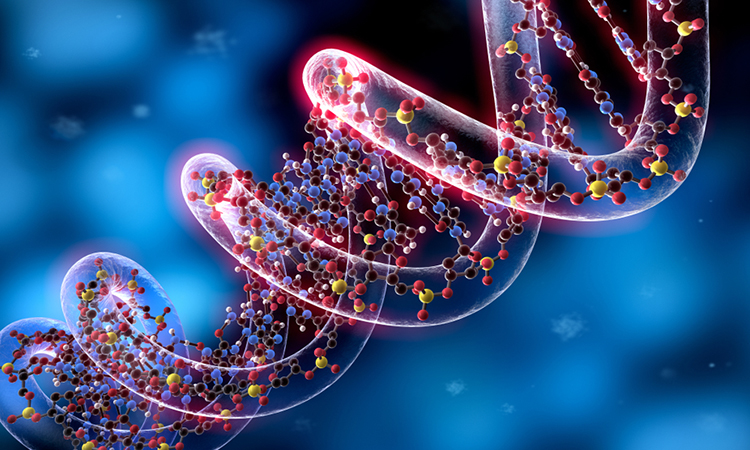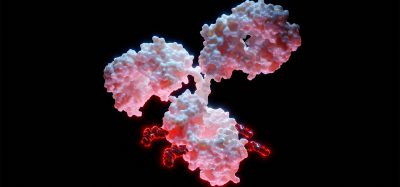Genetic scar left in the genome of bacteria
Posted: 6 October 2023 | Drug Target Review | No comments yet
New study reveals how pneumonia cells become resistant to penicillin through evolutionary gateway.


DNA - medical 3D illustration
A new study from the University of Sheffield, published in Proceedings of the National Academy of Sciences (PNAS) has uncovered an evolutionary gateway which helps pneumonia cells become resistant to penicillin antibiotics. The research has found a genetic scar left in the genomes of bacteria as they become resistant to antibiotic treatment. Antibiotic effectiveness is increasingly under threat as the bacteria causing pneumonia, a serious infection which is the third leading cause of death in the UK population, becomes more resistant to antibiotic treatment. Often these infections are caused by the Streptococcus pneumoniae (S.pneumoniae) bacterium.
This breakthrough will enable scientists to better predict which strains of pneumonia will become highly resistant in the future, giving them time to put control measures in place to help save patients’ lives.
The Sheffield researchers found that mutations called pde1 act as an evolutionary gateway through which the S.pneumoniae cells start to become resistant to antibiotics. Pde1 is one of the select few mutations known to promote antibiotic resistance to S.pneumoniae.
Lead author, Dr Andrew Fenton from the School of Biosciences at the University of Sheffield, said: “Pneumonia is a dangerous and deadly infection and effective treatment with antibiotics is essential for patient care.”
However, antibiotic effectiveness is progressively jeopardised as pneumonia-causing bacteria develop resistance to antibiotic therapies over time.
Dr Fenton continued: “This research has identified a genetic scar left in the genomes of bacteria as they become resistant to antibiotic treatment. This is a major step forward in understanding how resistance occurs and how we might be able to predict it.”
“If we understand the emergence of antibiotic resistance then we can predict what groups of bacterial strains are becoming more dangerous. Giving us time to put control measures in place to stop their spread, saving patients’ lives.”
Over the last 10 years there have been many large-scale genome association and genetic studies focused on S.pneumoniae antibiotic resistance but these have, so far, not led to effective mitigations.
This study is an important step forward in the molecular understanding of resistance.
Related topics
Antibiotics, Genome Editing, Molecular Biology, Molecular Targets
Related conditions
Bacterial Pneumonia
Related organisations
The University of Sheffield
Related people
Dr Andrew Fenton (University of Sheffield)







